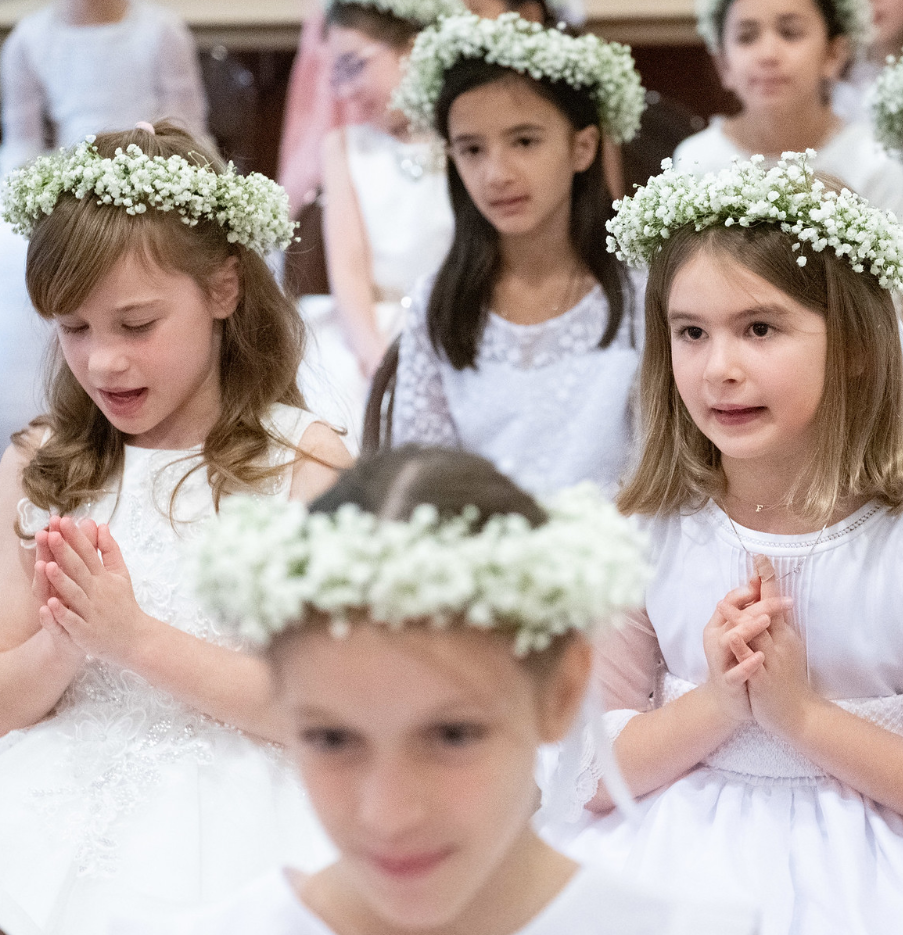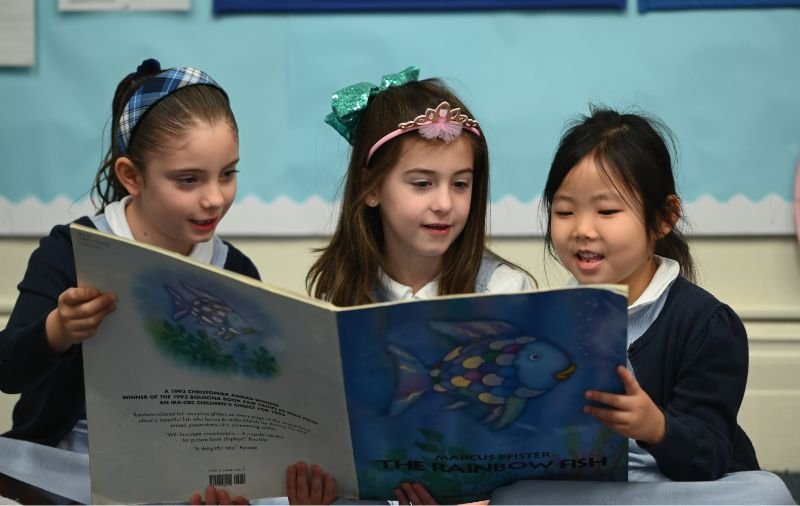Infused with abundant enthusiasm and creativity, our Lower School program inspires true joy in learning. From publishing their first book to creating an innovative product for the Invention Convention, students engage in active learning that draws upon their curiosity, imagination, and problem-solving skills. Meeting each child exactly where they are, our faculty supports and challenges students every step of the way.
Literacy
Immersion in a joyful, language-rich environment is paired with structured skill development throughout literacy instruction in the Lower School. Students are introduced to rich stories across genres as they engage in lessons that target specific literacy skills and then practice those skills with teachers, partners, and independently. Students participate in daily lessons from Wilson's Fundations program for evidence-based direct, sequential, and multi-sensory instruction in phonics. Teachers work with students in small guided reading groups and one-on-one conferences to further strengthen comprehension and fluency. Students are instructed on various genres of writing, including personal narratives, poetry, and nonfiction. Students are invited to share their work with the class, providing an opportunity to develop public-speaking skills and experience pride in their writing process.
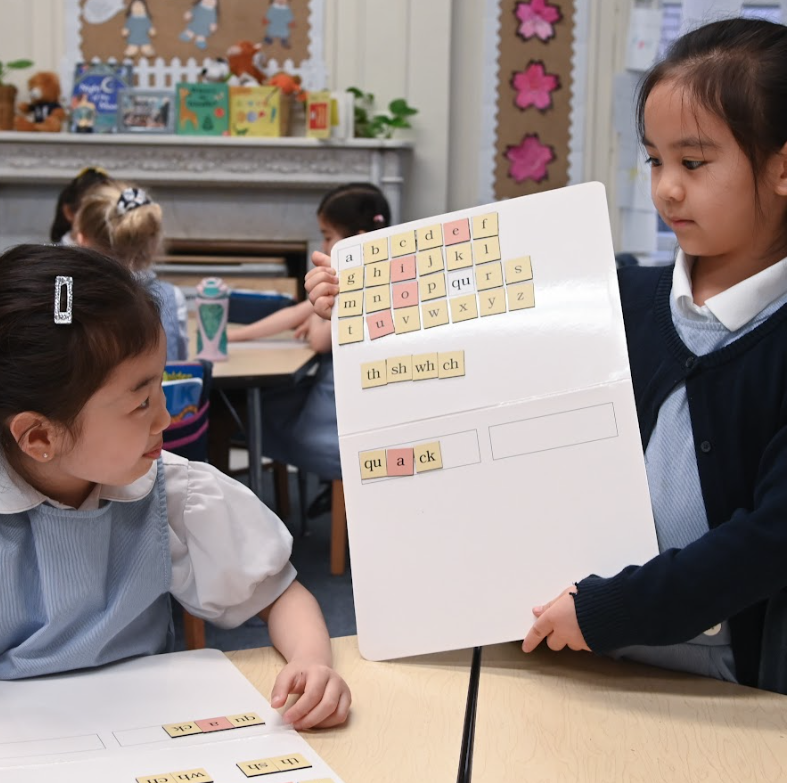
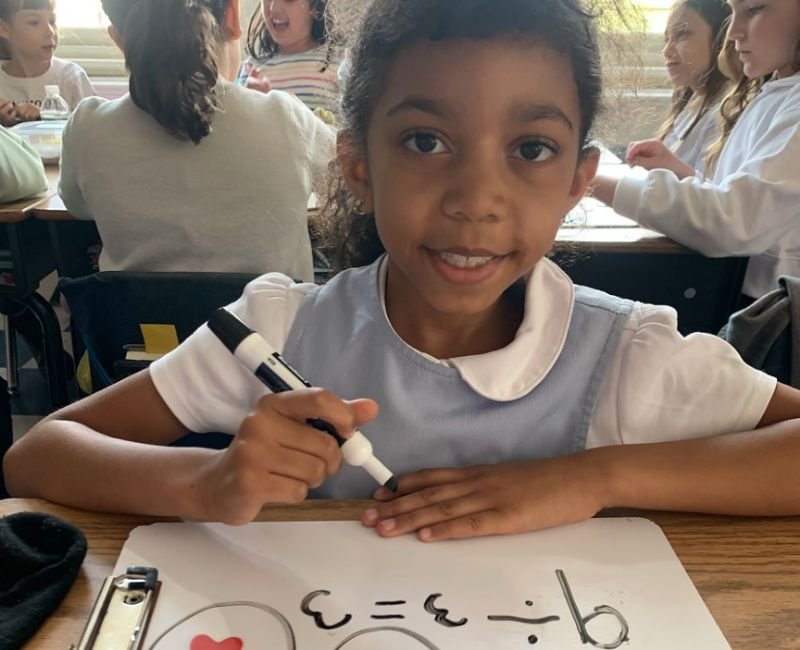
Math
In Lower School, teachers emphasize logical thinking and build confidence in mathematical problem solving, introducing students to foundational arithmetic concepts and developing an in-depth understanding of the “why and how” behind essential math skills. The math is rigorous, yet the learning is joyful as students hone their skills through games, activities, and puzzles. A Math Specialist joins classes regularly to provide students with one-on-one and small group instruction.
Social Studies
In Lower School, the social studies curriculum is designed to expand students’ understanding of themselves and the world in which they live. Beginning with an exploration of the self in Kindergarten, students go on to learn about citizenship and what it means to be part of a community. Class II focuses on the history of New York City from Manahatta and the lifestyle and culture of the Lenape people, to the development of New Amsterdam, to New York in modern times.
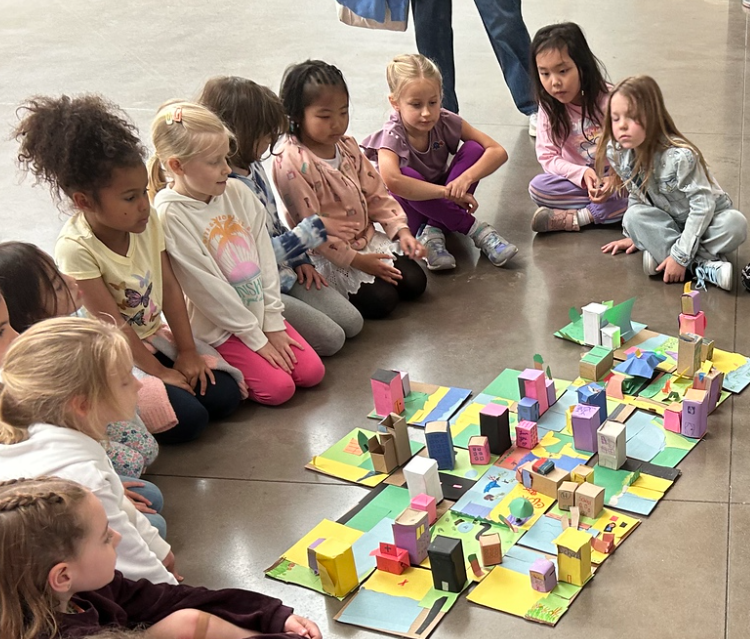
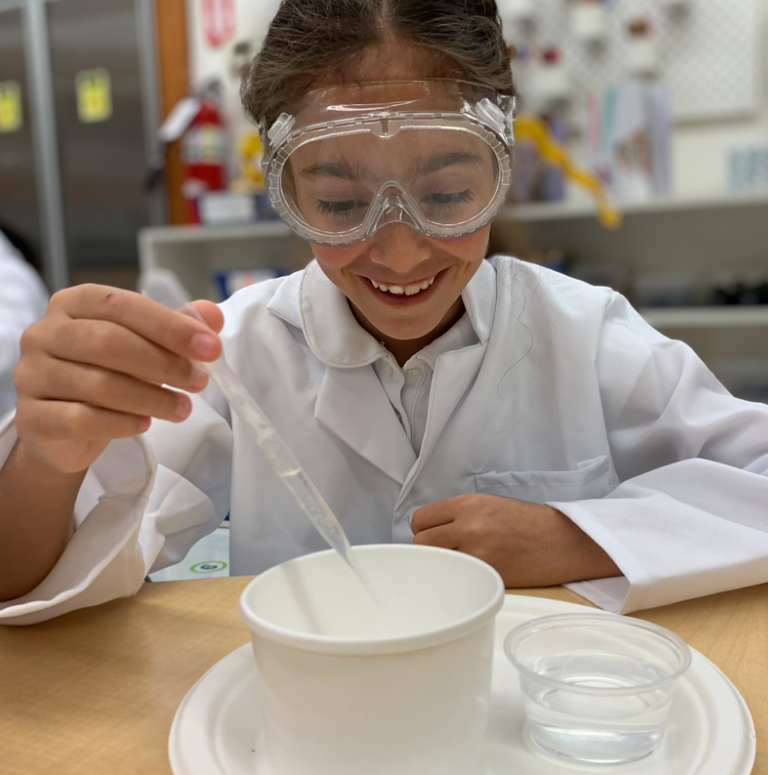
Science
The Lower School science curriculum is designed to cultivate the skills of scientific inquiry, as students feel capable and confident asking questions, designing experiments, sharing discoveries, and debating outcomes. They explore topics that include: forces and motion, the human body, animal life cycles, seeds and plants, light and sound, electricity, and states of matter. Field trips and engineering design challenges extend and enhance students’ understanding of these concepts.
CREATIVE TECHNOLOGY
In labs and studios, science, art, engineering, and coding generate dynamic, authentic inquiry and understanding and foster connections across all disciplines. Program highlights include the introduction of coding in K through Ozobots, building and design challenges in Class I, and the Invention Convention in Class II. In this capstone project, students become young inventors and entrepreneurs, working in teams to create working inventions using littleBits, laser cutters, and 3D printers and then produce short commercials to pitch their inventions.
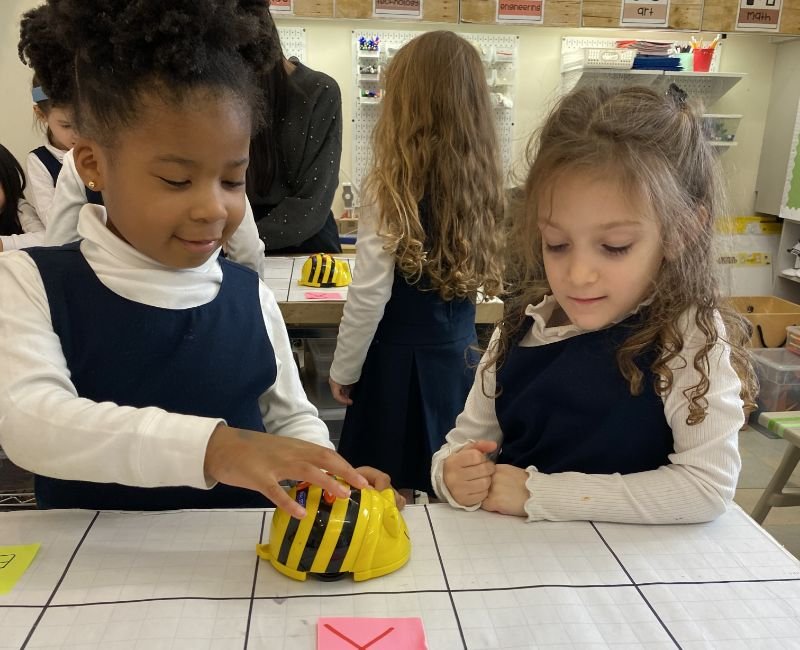
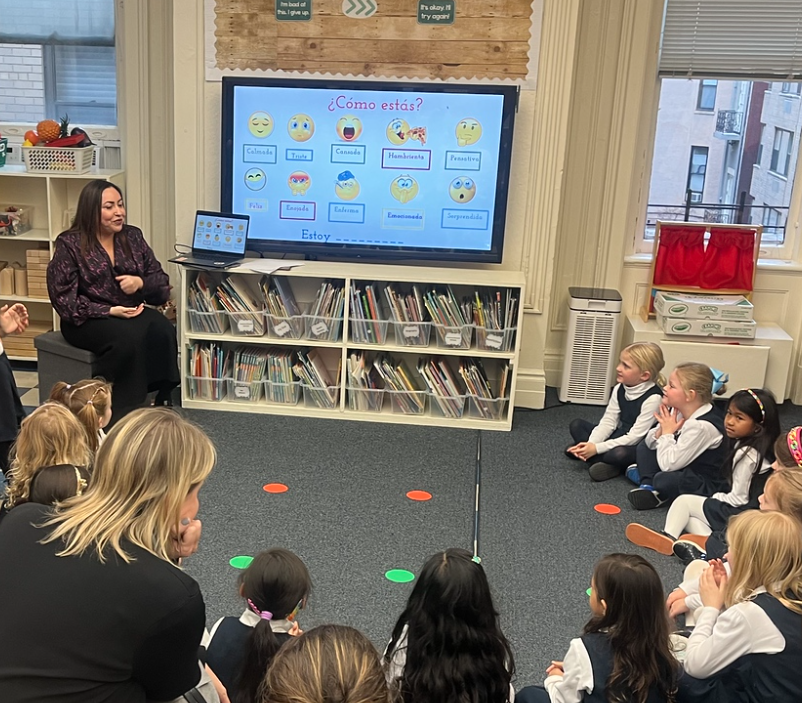
World Language
From Kindergarten through Class V, students study Spanish language and culture, building their comfort with listening, speaking, and writing skills. At the end of Class V, students make a decision to pursue Spanish, French, or Latin in Classes VI-XII.
Art & Music
Students in Lower School use music and art as avenues for creative expression and critical thinking. Students explore new materials and techniques in art class as they explore two- and three-dimensional skills. In regular visits to The Metropolitan Museum of Art, students study, interpret, and draw inspiration from the diverse art and artifacts of the museum’s collection. In music, students sing joyfully as they learn how to sight read rhythm and use the solfège scale. All students showcase their art and sing regularly at chapels, assemblies, and performances.
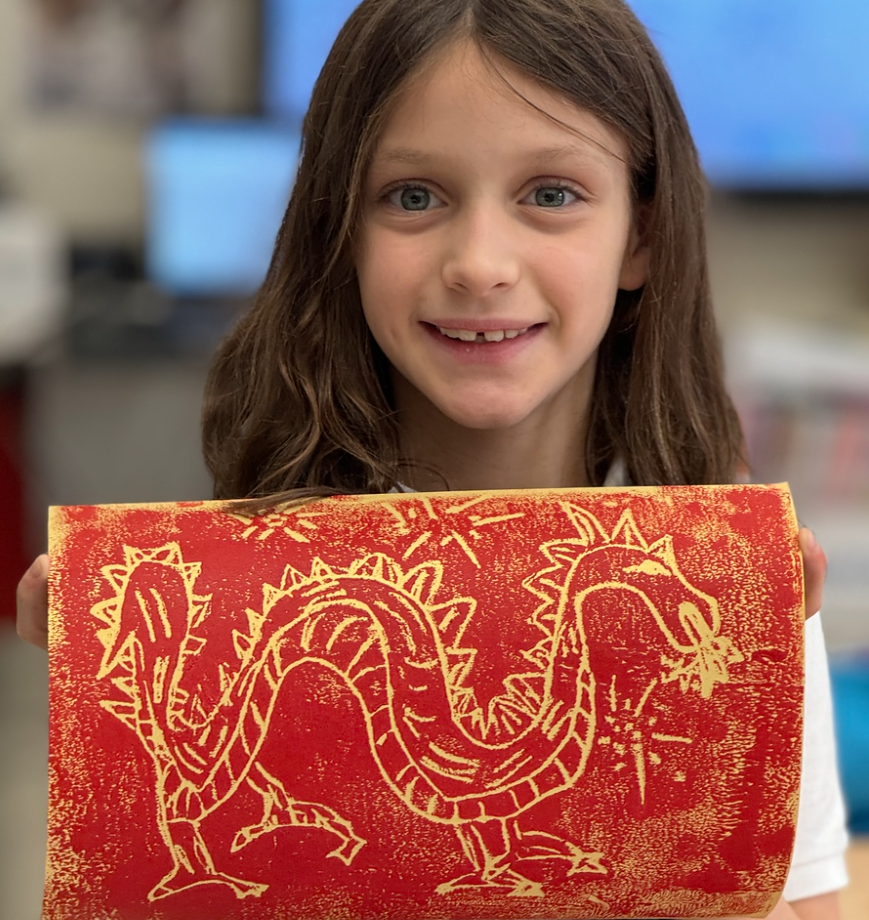
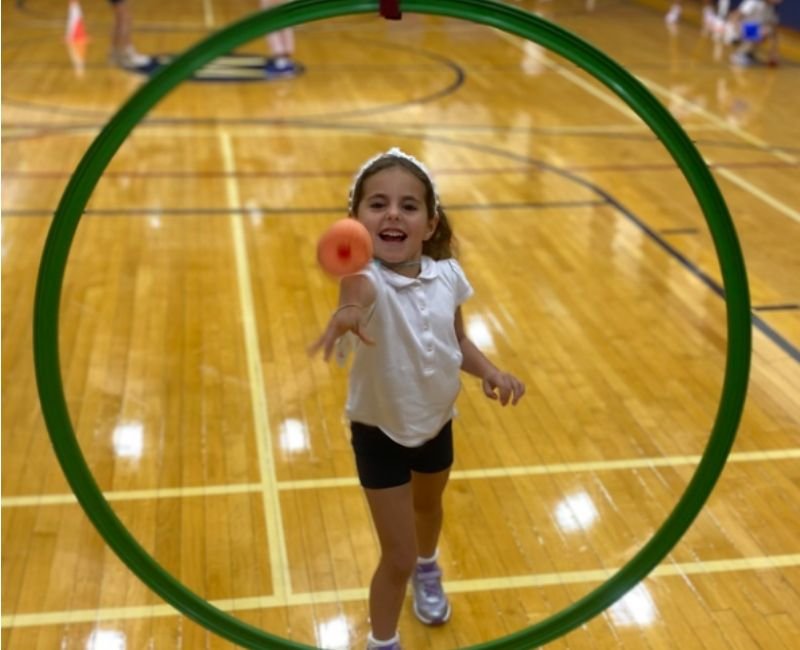
Dance & Fitness
In physical education, students develop their coordination and gross motor skills through cooperative games and personal challenges. Through group games, they also focus on developing strong teamwork, sportsmanship, and communication skills. Dance class is a place for music and movement. Students learn to move gracefully in a variety of dance styles.
Religion & Character Development
Students are called on throughout their school day to be kind, courageous, and empathetic members of their community. In Religious Studies, students hear stories from the Bible, practice taking part in Masses and chapel services, and begin to develop their spiritual self. In Class II, Catholic students celebrate the Sacrament of First Communion. Students of all faiths are included in all religious celebrations and are invited to share their beliefs and traditions with one another.
